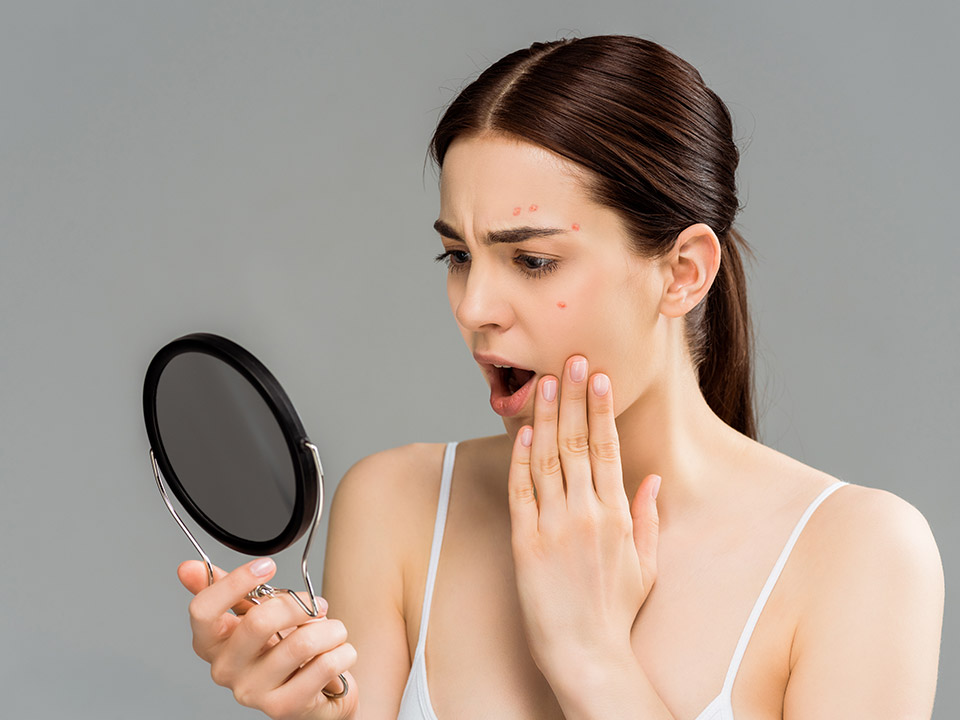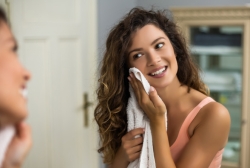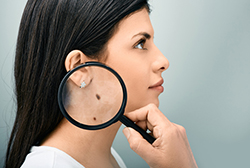
Helpful Tips to Improve Acne-Prone Skin
For most people, acne starts during puberty. When hormones are raging, it starts to affect your skin, particularly your face. For some people, this goes away when puberty comes to an end. Unfortunately for others, it does not go away. It is also common to experience acne breakouts in your adult years. Studies have shown that acne can attack at any stage of your life. When this happens, it is because of the overactive nature of your skin’s oil glands that causes inflammation in the pores. Also, skin bacteria could enhance acne on your skin, making the breakouts worse. This can happen on any part of your body, but the face is more prone to breakouts. While acne is normal, it does nothing for your confidence. Plus, the pimples can be painful, depending on the situation. If your skin is prone to acne breakouts, you have no doubt tried many remedies to prevent breakouts. If you are here, it means that they did not work as well as you had hoped. Luckily, you have not exhausted all options because there are a few things you can try to improve acne-prone skin. It is important to note that caring for acne-prone skin is about more than slathering pimple-reducing products on your skin. It will also involve lifestyle changes and learning about yourself.
What to Do
- Know your skin type. Knowing your skin type is half the battle when facing acne and breakouts. Know that anyone can get pimples, despite their skin type. However, oily skin is the most prone to acne breakouts. This is because of the sebaceous glands that produce too much oily sebum. Likewise, dry skin can experience acne breakouts for several reasons, including environmental factors and a poor skincare routine.
- Moreover, some people have combination skin, meaning different skin types on various parts of their face. People like this are likely to develop acne on the forehead, nose, chin, and near the lips. Learning about your skin will help you care for it better and prevent pimples.
- Stay hydrated. This is a lifestyle change that will help you see less acne on your skin. If you are dehydrated, the body will trigger the oil glands to produce more oil to keep your skin moisturized. Unfortunately, with the rise in oil production, you will face clogged pores that contribute to acne. Additionally, dehydrated skin will promote inflammation and redness. Drinking water every day, especially if you are on the go and exposed to the sun, will help keep your skin supple and moisturized. This means less production of oil, thus less skin.
- Moisturize your skin. This is closely related to staying hydrated. Moisturizing your skin gives it an extra form of protection, should you forget to drink water. It is also great for when the sun is out. The heat from the sun will cause your skin to dry quicker than regular. Applying moisturizer to your skin will keep it from drying out. When using moisturizers, purchase the one tailored for your skin type. It will go a long way in preventing future breakouts. Similarly, go for unscented moisturizers.
- Wash your face. When dirt, sweat, and dead cells clog your pores, you will face breakouts, especially on your face. Therefore, you must observe proper hygiene by washing your face regularly. Do not use harsh face cleaners; mild soap and water will work better. Firstly, use warm water, not hot or cold. Secondly, use your fingers to gently massage the cleanser on your skin instead of a washcloth. Rinse well, ensuring that you get rid of all the cleaners as traces will worsen acne. Additionally, use cold water to do the final rinse as it better opens up your pores. Finally, pat your skin dry with a clean and soft towel instead of rubbing.
What to Avoid
- Pimple-popping. Any dermatology expert will tell you that popping pimples will do more harm than good. There are instances where pimple-popping is non-damaging, but it will often require a professional hand, and it is only for specific pimples. Instead of risking it, avoid popping pimples altogether. Popping pimples could cause bleeding, which brings on severe scarring.
- Additionally, pimple-popping could cause infections, making your wound worse. Lastly, you could deposit dirt and germs on the exposed wound and surrounding pores causing inflammation and redness. Sadly, this will increase your pimple problems and make it more painful to deal with.
- Junk food. Sadly, the best-tasting food could be causing acne breakouts. Studies have shown that eating foods with high glycemic content will cause pimples. It is because high glycemic foods have high sugar content. This will spike your blood sugar, making it rise higher and faster. This translates to higher insulin levels and insulin resistance.
- Additionally, it will cause inflammation on the skin, heightening the chances of developing acne. High glycemic foods also bring on weight gain and type 2 diabetes. Make the change by avoiding soft drinks, food made from white flour, chips, and other fast food items.
- Touching your face. This seems almost impossible to do, which is why it will have such an incredible impact on your face. Your hands probably encounter the most germs throughout the day. And all these germs transfer onto your face when you touch it. Whether you are scratching an itch or rubbing your eye, you will deposit germs onto your face. This will go on to clog pores, causing acne. One way to avoid this is by touching your faceless regularly, or not at all; if this does not work, consider constantly cleaning your hands. Sanitizer could start to affect your skin, so do not rely too heavily on this option. To conclude, acne is normal for every skin. However, it can cause permanent scarring, pain, discomfort, and even low self-esteem. With these remedies, you can control acne breakouts and tame the pimples before they spread. You could also use over-the-counter medication to treat acne. Just be sure you follow the recommended dosage and discontinue use if you face any side effects. With a bit of dedication, you will conquer the effects of acne.





